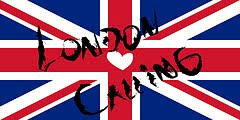The first Stuart king, James I, came to the throne in 1603. He was already King James VI of Scotland. He united the two countries under one king. A group of men tried to blow up both him and the Houses of Parliament. This Gunpowder plot failed.
Charles II opened Hyde Park to the public and created Richmond Park for hunting.
Civil war broke out in 1642 between supporters of the king and parliamentary forces, led by a Puritan called Oliver Cromwell. The king lost and was beheaded. Britain became a republic known as the Commonwealth. In 1660 the monarchy was returned. Oliver Cromwell forbid theatre and dance, so the monarchy was very welcome.
London suffered two disasters in later Stuart years. In 1665 the Great Plague killed about 70.000 people. The bubonic plague was brought to London by rats on board of trading ships. It spread very quickly because people lived very close quarters and hygiene standards were very low.
In 1666 the Great Fire of London destroyed two thirds of the City: 13.200 houses, 430 streets and 89 churches. The fire could be seen from 40 miles round the capital. It started as a small fire accidentally in Pudding Lane in the City of London, and raged for five days as an enormous fire.
To prevent such a disaster happening again, King Charles II commanded that all new houses in London should be of stone and brick, not wood.
Christopher Wren constructed St. Paul's Cathedral as well as many churches. Buckingham was built for the Duke of Buckingham.
Monuments, sites and remains from the time:
- Wren's achitecture:
*Saint Paul's Cathedral
*The Monument (the Great Fire Memmorial)
*Wren's churches: Christ Church's tower, St. Andrew (Holborn), St. Bride's, St.Mary-at-Hill, St. Mary-le-Bow, etc.
*Kensington Palace
*Marlborough House
*Old Royal Naval College
*Royal Hospital
- The Banking House
- Lincoln's Inn
- Cloth Fair
- The Museum of London
- The British Museum
- The Victoria and Albert Museum
Subscribe to:
Post Comments (Atom)

No comments:
Post a Comment